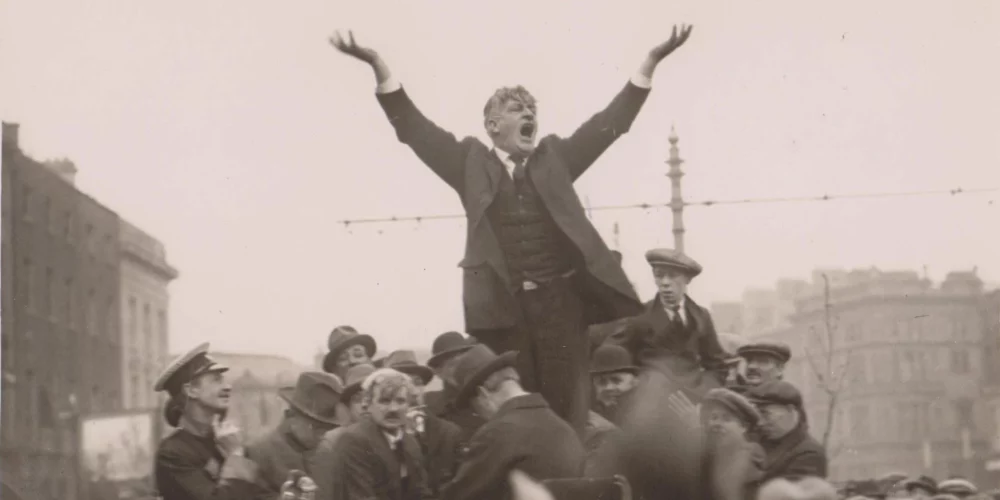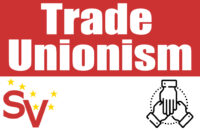As the trade union movement gathers in Kilkenny for the ICTU biennial delegate conference, we must take notice of the changing demographics of union membership.
The average age of union members is 48. Only about 12 per cent of members are under 30 years of age.
Despite the number of people in the work force more than doubling since the 1980s, union membership is static, at around 780,000.
In the 1980s unions had power over their own destiny; workers decided when and for what they took industrial action. “Social partnership” put an end to that. The crowning glory of the social partnership era was the Industrial Relations Act (1990), which was the worst dilution of workers’ rights since the foundation of the state. This legislation was designed purely to restrict workers’ rights and tip the balance of power firmly onto the side of employers, with the judiciary as the adjudicators. The 1990 act has nothing to do with partnership and everything to do with the ruling class controlling workers.
After the twenty-three years of social partnership (1987–2010) the ICTU entered the new decade seriously weakened, with union density down to 31 per cent, compared with a high point of 62 per cent in the early 1980s. A decade later, density continues to decline and now hovers around 27 per cent.
The proportion of people under 25 joining unions has been falling for decades, leading to an aging membership. This is very concerning, because there is a strong association between joining young and remaining a member: people who do not join a union when they are young are much less likely to join later. The recruitment of more young people is therefore crucial for the survival of the trade union movement.
If this pattern continues there will be no trade unions in twenty years, as the bulk of the present membership will have aged out and retired—this at a time when Ireland has the second-highest level of workers on low pay in the OECD. Bogus self-employment, minimum-hour contracts, short-term contracts, the gig economy and part-time work are rampant. On top of this we have a housing crisis not seen since the 1930s, and over a million citizens on hospital waiting-lists.
The politicians have failed the people of Ireland; and there is no sign of that changing any time soon. The working class are crying out for change and leadership. With unions severely restricted by the 1990 act, all the trade union movement can do is hold marches on a Saturday against these crises in health, housing or the cost of living to lobby or put pressure on the political class, whose policies caused the problems in the first place.
This is instead of being able to flex our industrial muscle and take on the corporate backers at whose behest Fianna Fáil and Fine Gael impose these policies on our people. The huge tax marches of the late 1970s were not ignored when close to a million union workers walked off their jobs, shut down the economy, and forced the Government to take notice. Today we don’t have the power to do this, because of the 1990 act.
The Dublin Council of Trade Unions motion unanimously passed at the last ICTU conference called for legislation to replace all those rights lost by workers as a result of the 1990 act.
The campaign to get this legislation enacted, as called for in the motion, needs to be started. The Trade Union Left Forum have drafted legislation—the Fair Employment Bill (2022)—to do this. The groundwork has been done.
Trade unions need to get back to the foundations that Connolly and Larkin built them on. James Connolly said: “Legislation does not control the Lords of Industry; it is the Lords of Industry who control legislation.” The trade union movement must oppose legislation that weakens it. We must tip the balance of power back in favour of workers. We need to build union strength to give workers the power to win back lost ground and gain new victories.
Jim Larkin famously said: “The great only appear great because we are on our knees; let us arise!” This is exactly where social partnership and the 1990 act have brought the workers of Ireland: back onto our knees.
Let us rise to the challenge in the DCTU motion from the last ICTU conference:
“Conference recognises that the restrictions on trade union action in the 1990 Industrial Relations Act need to be opposed, and that the act should be reformed to restore rights which trade unions had before 1990. Conference mandates the executive to seek an alternative legislative regime which would allow trade union and industrial action for individual workers, for issues that concern workers across society and, across employers, and for effective solidarity to workers in dispute.”
It is union policy.
Trade unions must be radical or they will become redundant.





